We pulled the anchor up and left at last from Vuda Point. We headed north past various rusty hulks outside Lautoka. We saw the pile of orange sugar cane chaff again which had smelled so sweet from the bus. Motoring north in idyllic conditions following Ocelots or Paddy’s tracks inside the reef.
Its not a popular route we read later but we were happy, all the way. Later in the morning the wind picked up against us and we realised what we needed most was to stop. Luckily we had researched for this moment so we had a few anchorages to choose from after the river Ba. The last 3 miles went painfully slow as the sea floor sloped towards the land very gradually. The first night we spent here just past Ba in front of a little beach with a yacht in the distance while local motorised ( fishing?) boats buzzed passed as Vatia Warf was round the corner.
The next night we were at Nananu-I-Cake. The passage the following day was again all motoring towards Savusavu. We had left as early as we could that morning from Nananu-I-Cake motoring into the beautiful day of sunshine with puffy white clouds and very little wind. The navigation tools on board are such a Gift! What would we do without technology?
Later on we navigated a wierd pass round the point at Nassonisoni Island near Navatu where we memorably went through a narrow 3 mile pass with no markers, we only had our unreliable charts to guide us. This pass forty-five minutes of heart in your mouth high rev 6 nm in order to combat the current. 
The main highlight was seeing our first whales in Fiji. Always a thrill.We saw 2. One breached a few times then showed us its tail.
Next challenge: After motoring straight accross the bay to a likely ancorage near Jean Michelle Cousteau resort it became dusk and we weren’t surprised a few hours later when the wind changed and we started to drag the ancor. So at 3 in morning we get up, it’s raining and start plan B in the dark. Plan B turned out to be biding our time til we could see to enter the Savusavu estuary. The rain is still pouring down at this stage, setting the grey scene where we pick up an orange ball in front of the Copra Shed Marina. Success, so time to sit back with our coffee watch a new world wake up.

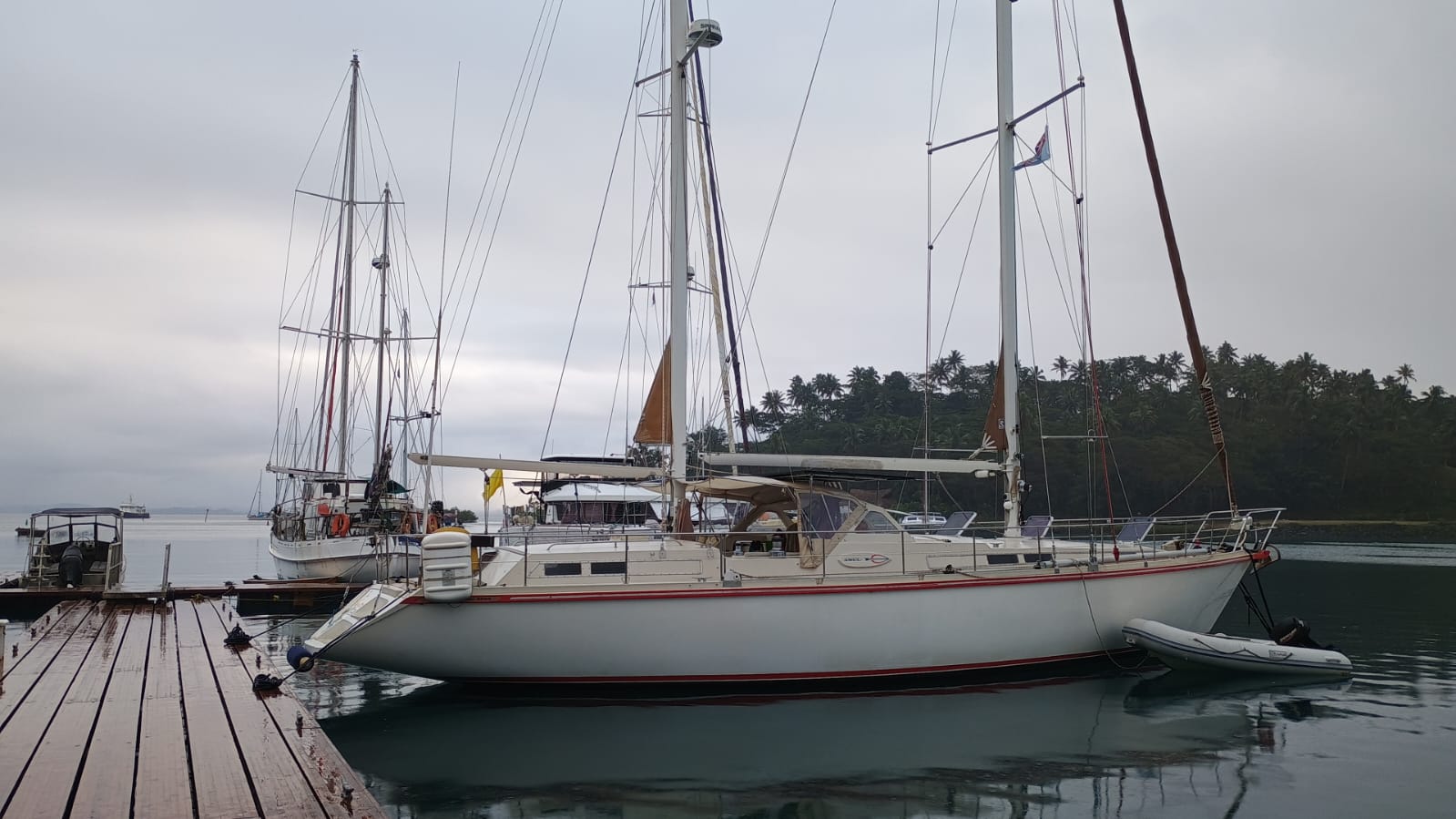
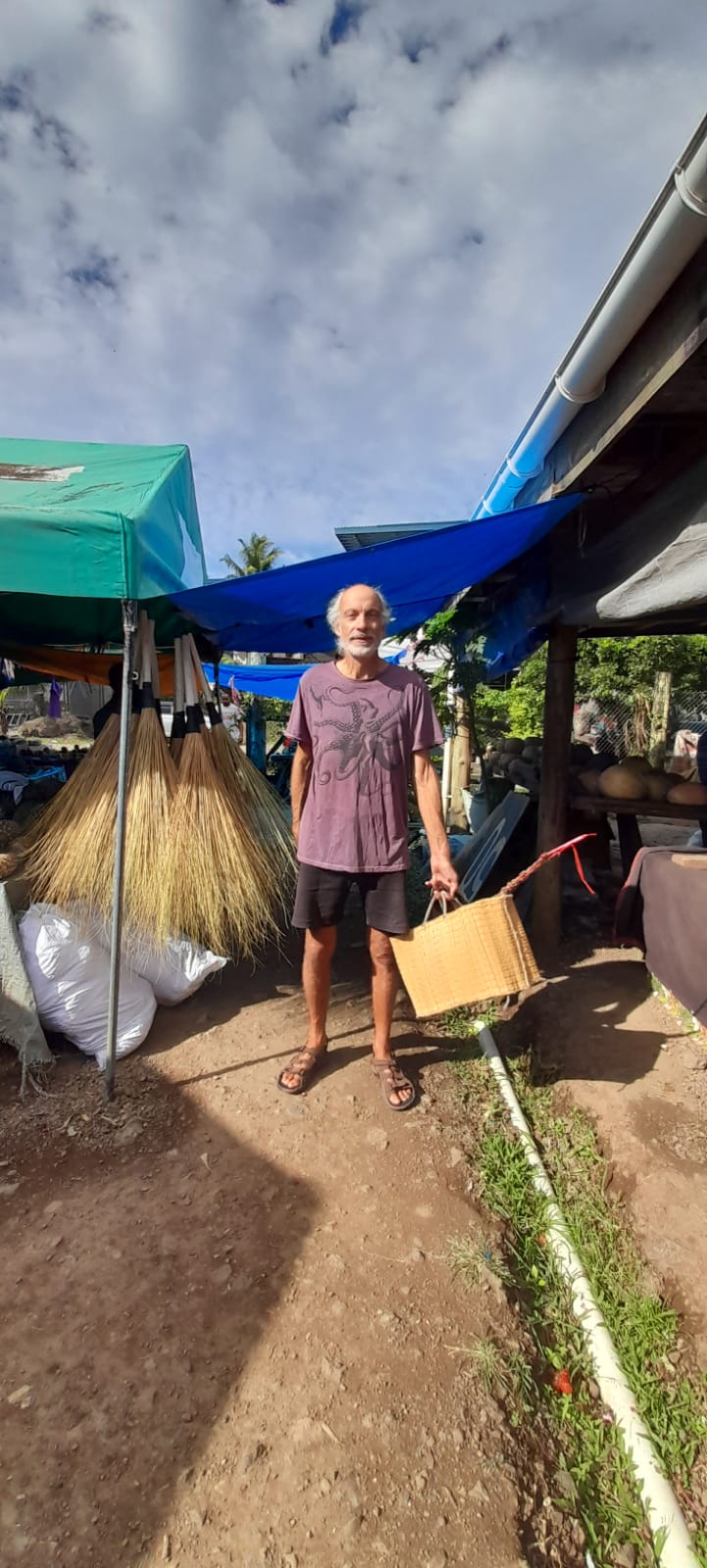

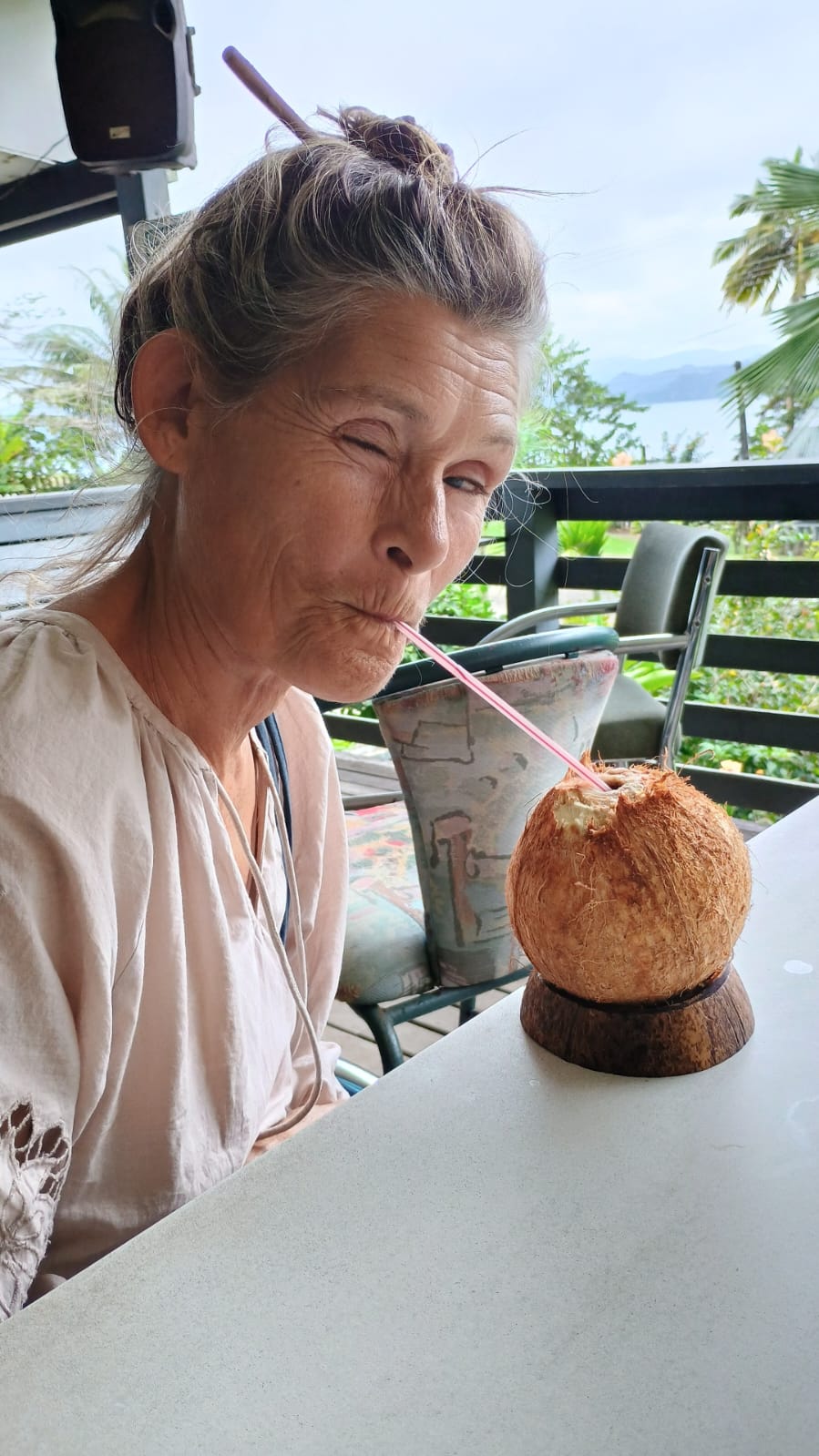
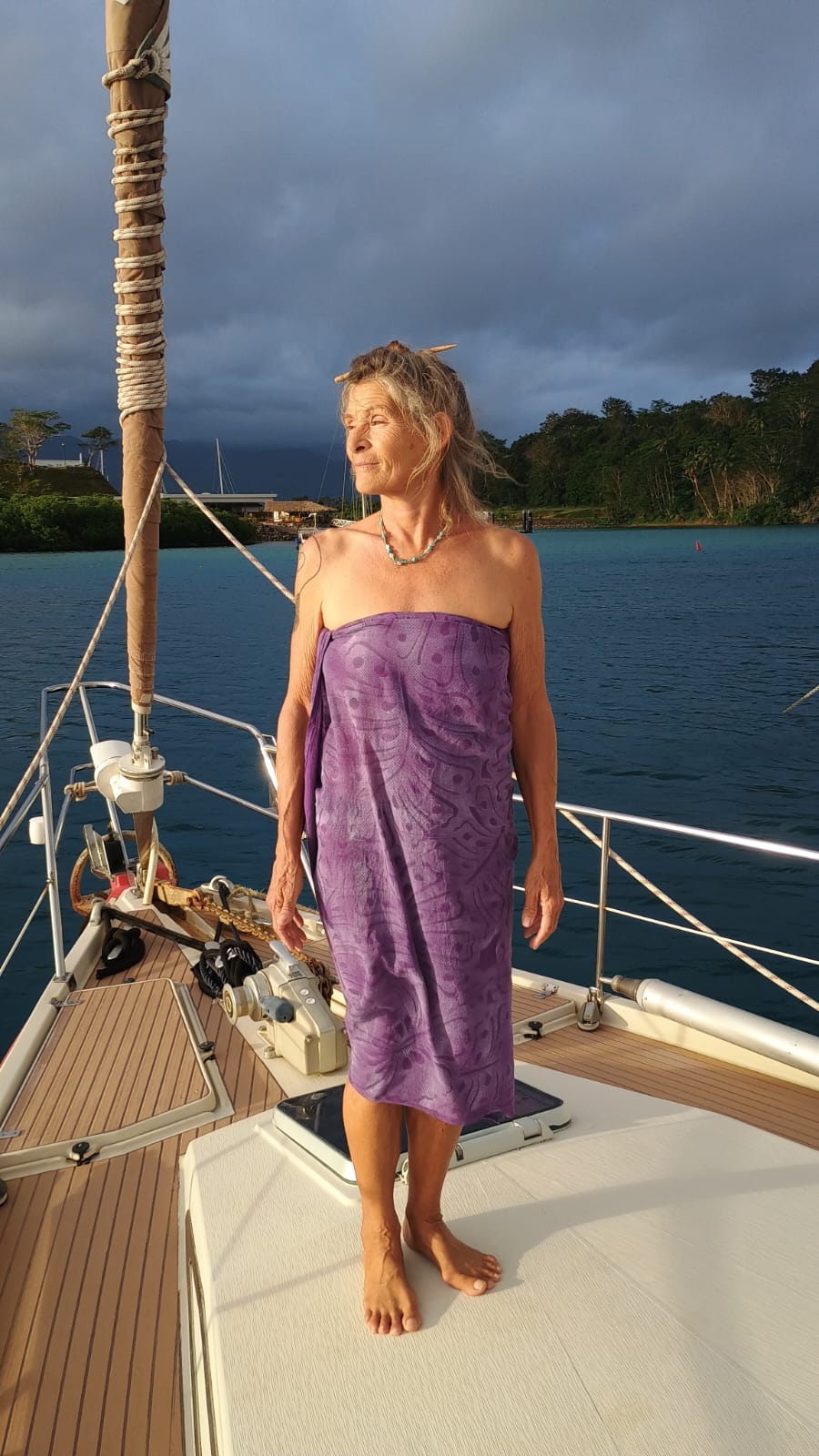
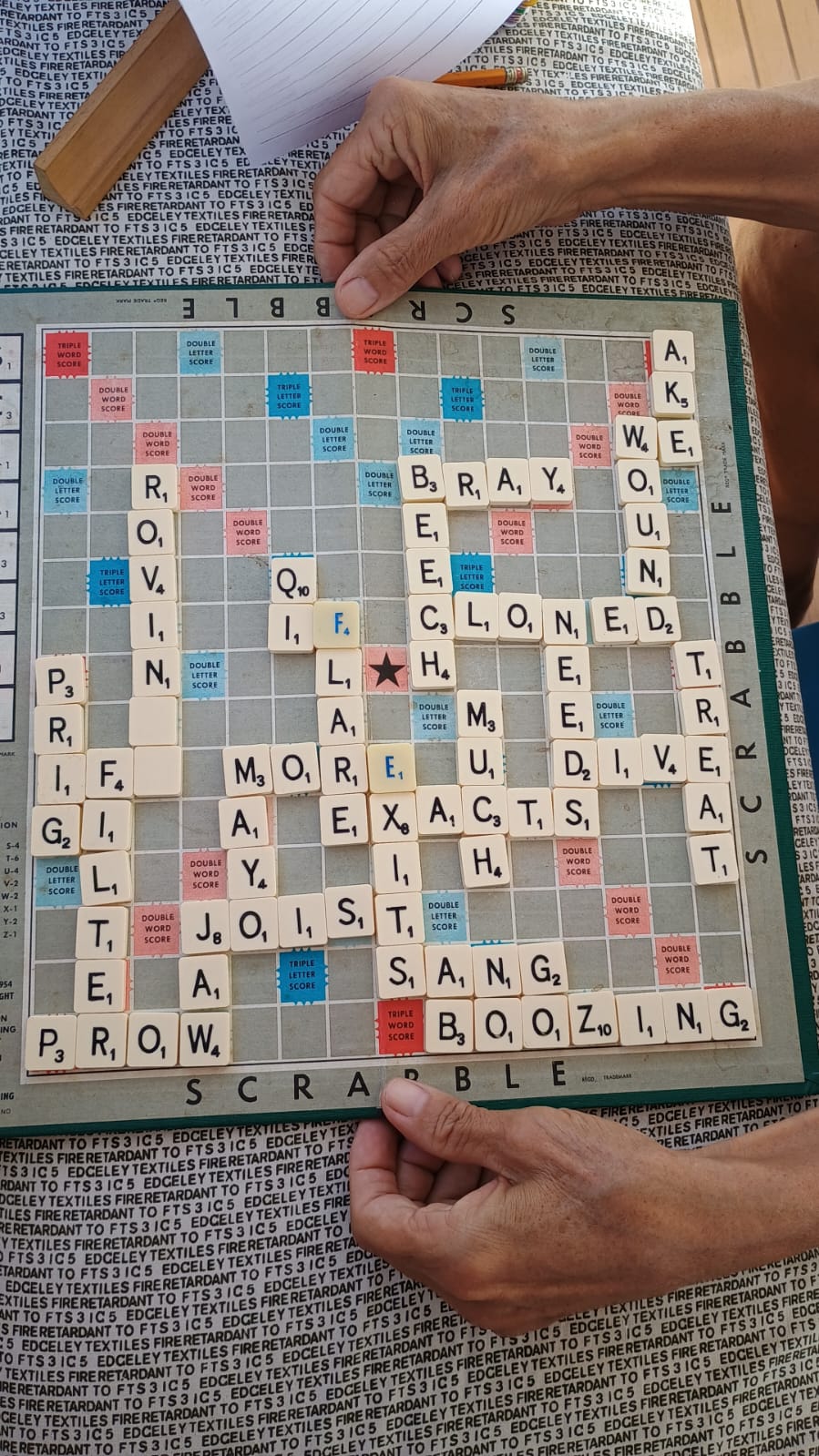

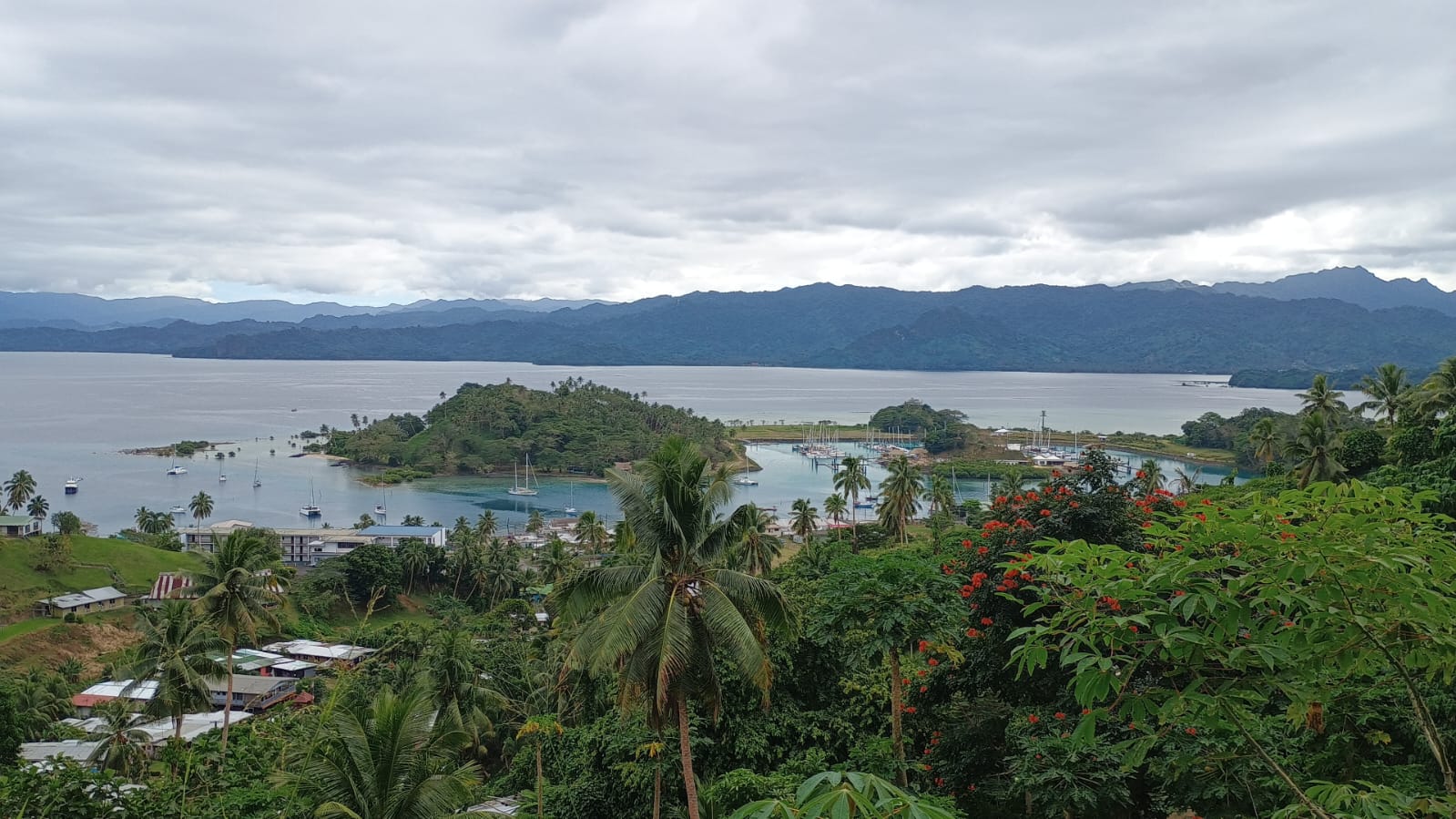
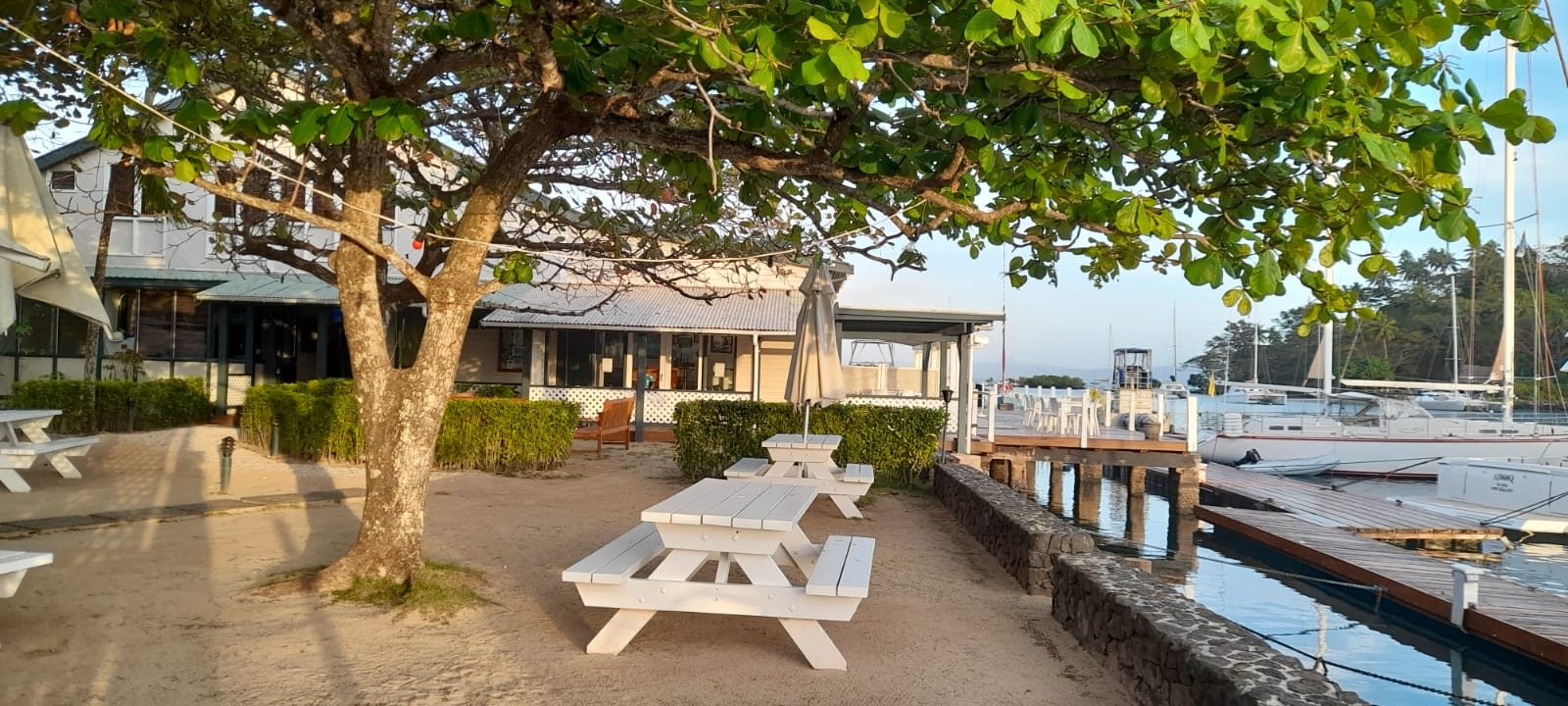
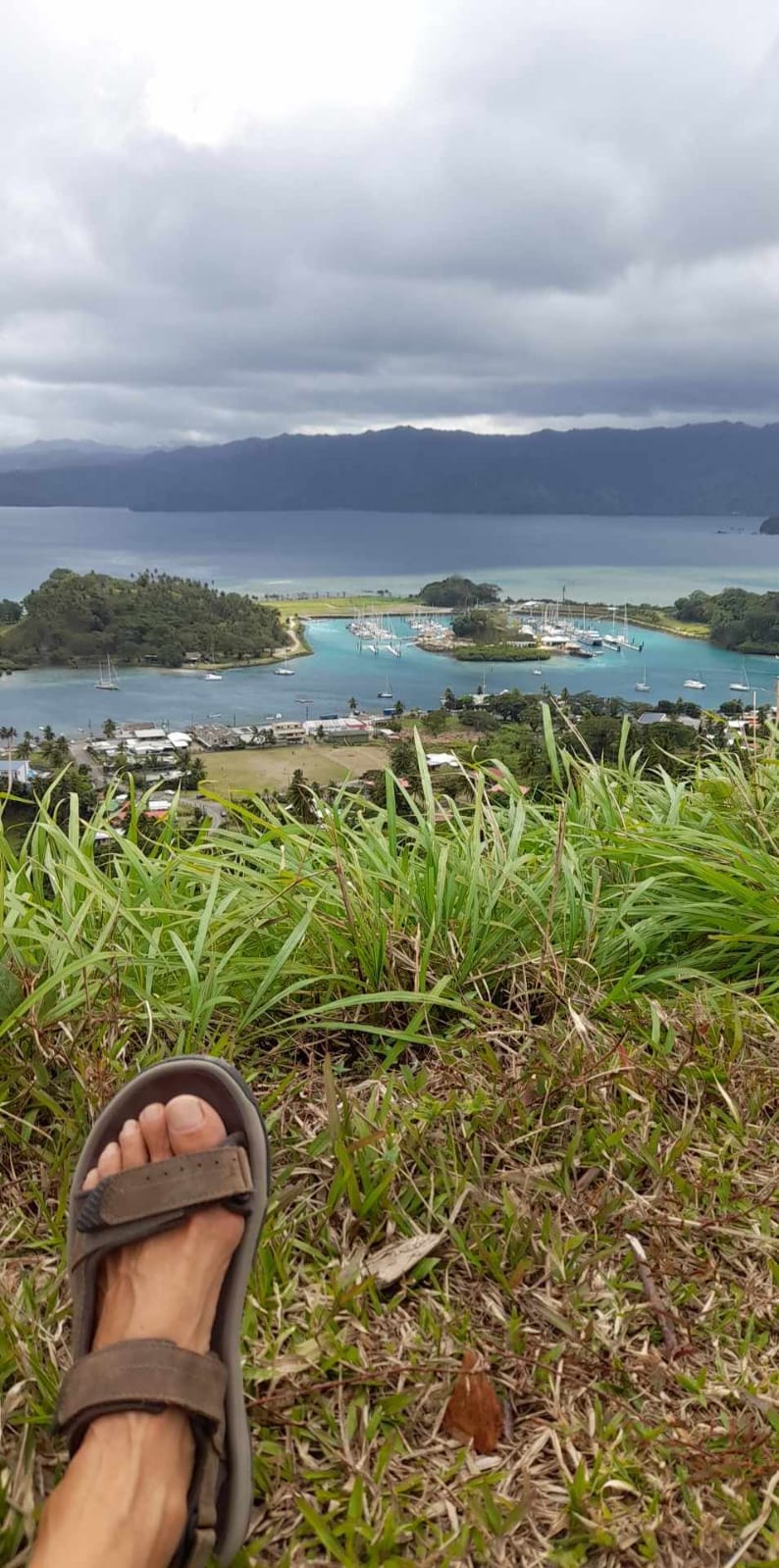

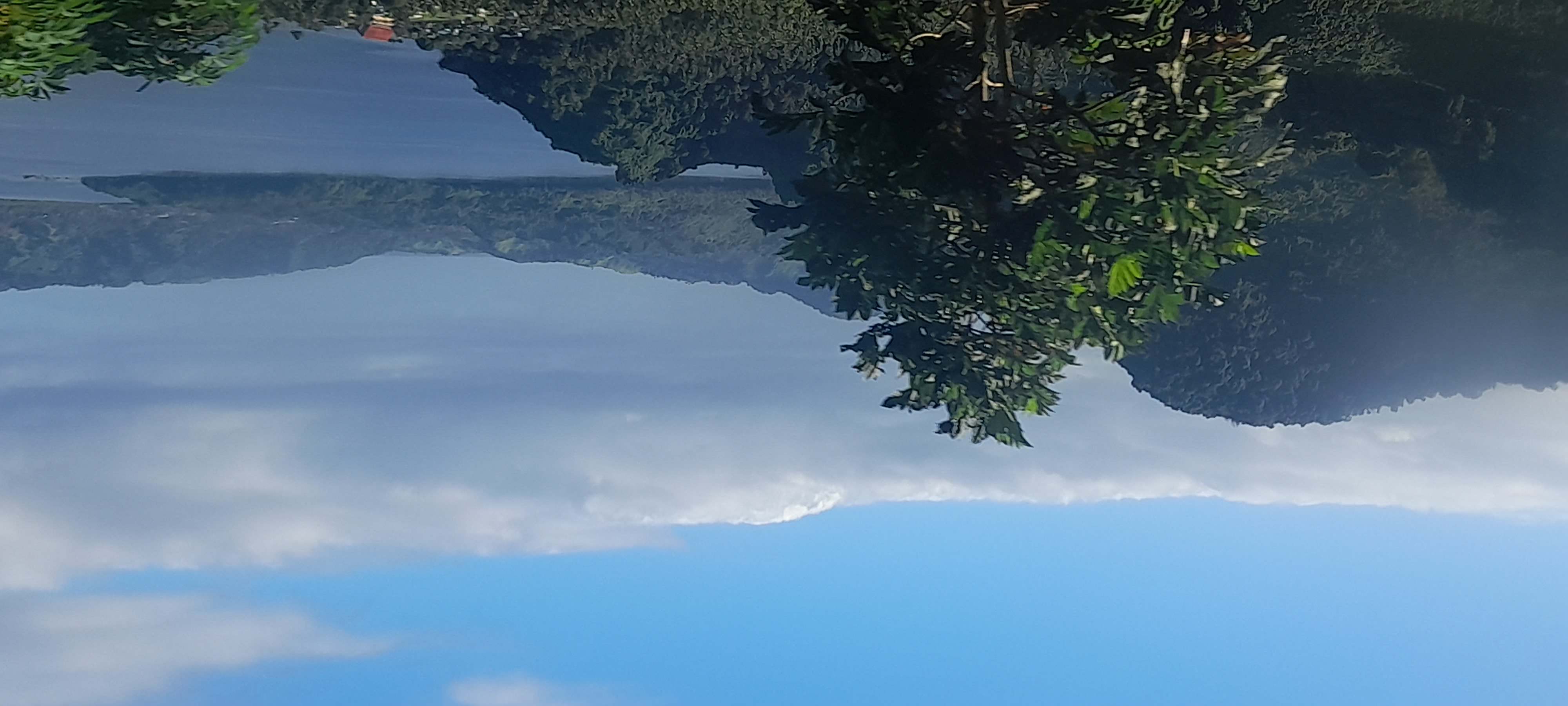
The Savusavu pigeons of various shades of grey do a good impression of swallow murmuring.A dance where they fly up doing a big swoop and returning in unison to the wires feeding the small town with electricity. A main wire junction by their landing place is a bit messy though not really the full wild chaos of an Indian electricity pole. That is yet to come on our journeys together.
This is Fiji, a country inhabited by 50 percent Indians, a handful of Europeans, and the rest native Fijians.The Indians are mainly fifth generation from indentured laborers to the cane fields. They tried to go home .Sometimes the boats were full. Centuries pass and ‘home’ becomes further away. Land changes hands and you may not have home where your family were born anymore. Also, British colonialism has left a people without the ability to stand up for themselves.You see this in the way they can’t say no and are often excruciatingly polite. I hear that half the Fijians live in abject poverty. However the people are so friendly, cheerful and relaxed it makes us want to stay longer.

One bus takes five hours and goes the long even more scenic way round. Leave early and you arrive at Labasa at 3 and take the bus home at 4. Its not my idea of a good day out eight hours on a bus. The other bus the one we get is 2 and half hours. So we get the fast bus.

I will be calm weather for a few days so we leave Savusavu to do snorkeling at Namena Island nature reserve.

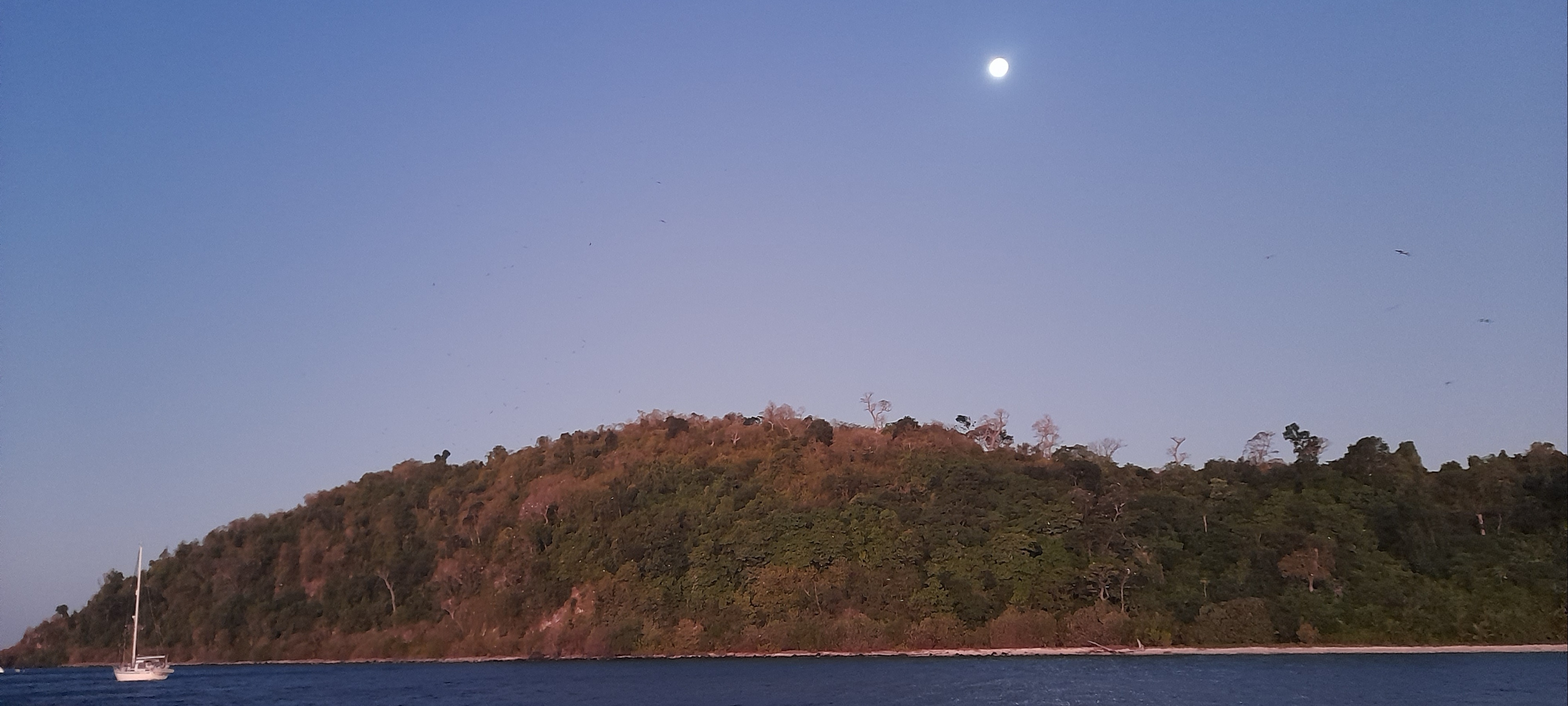
What a pity we must leave. I prep the dinner early and we put the dingy in its spot under the mizzen.